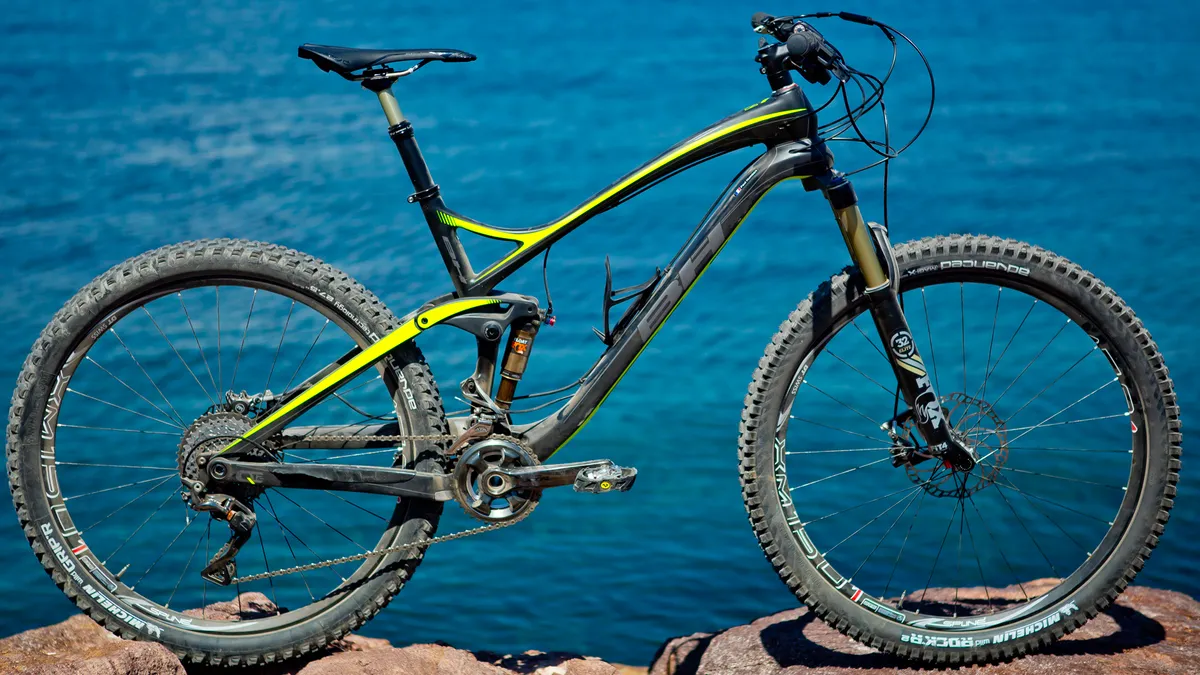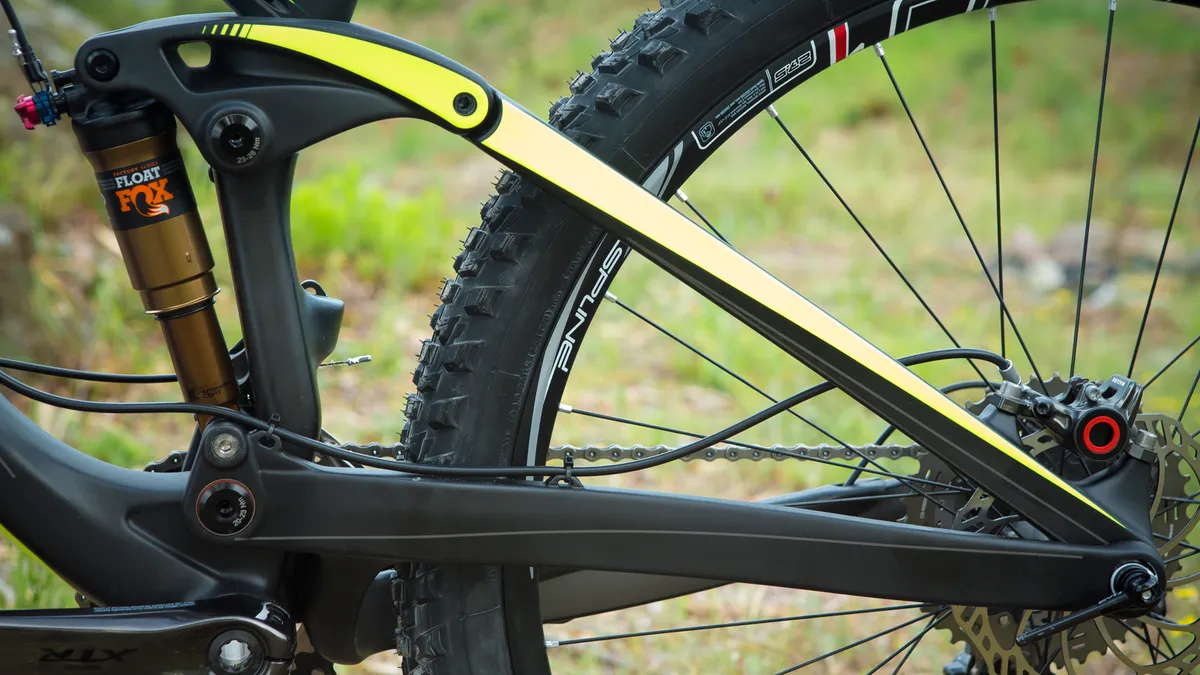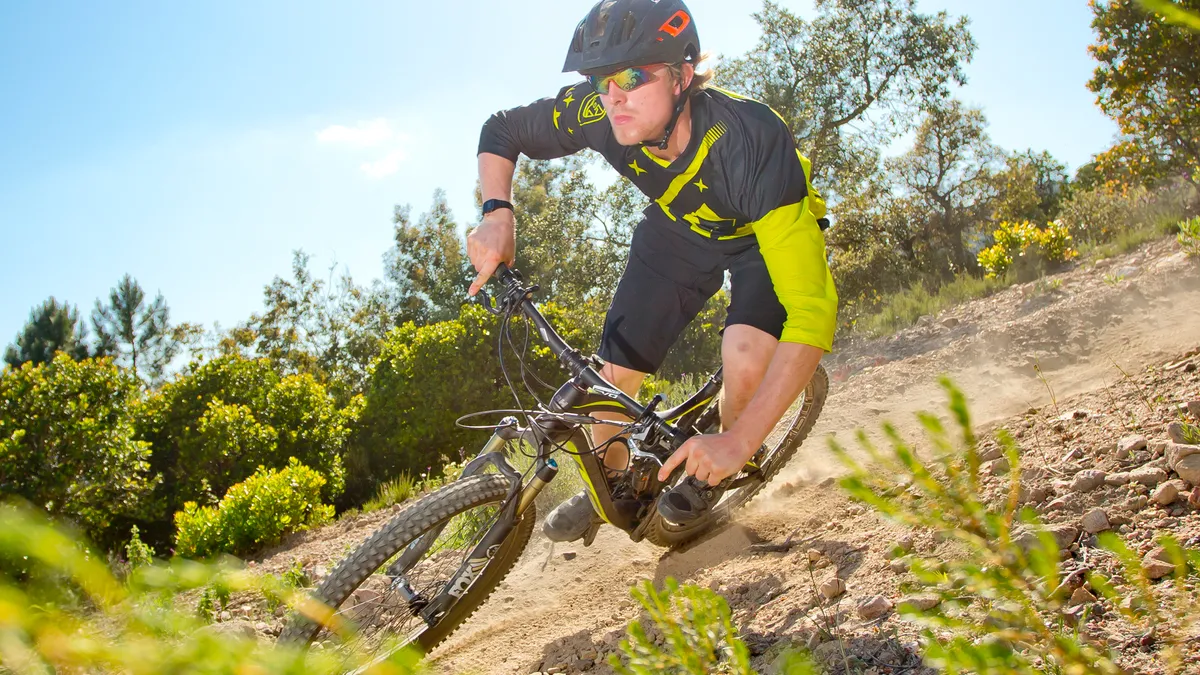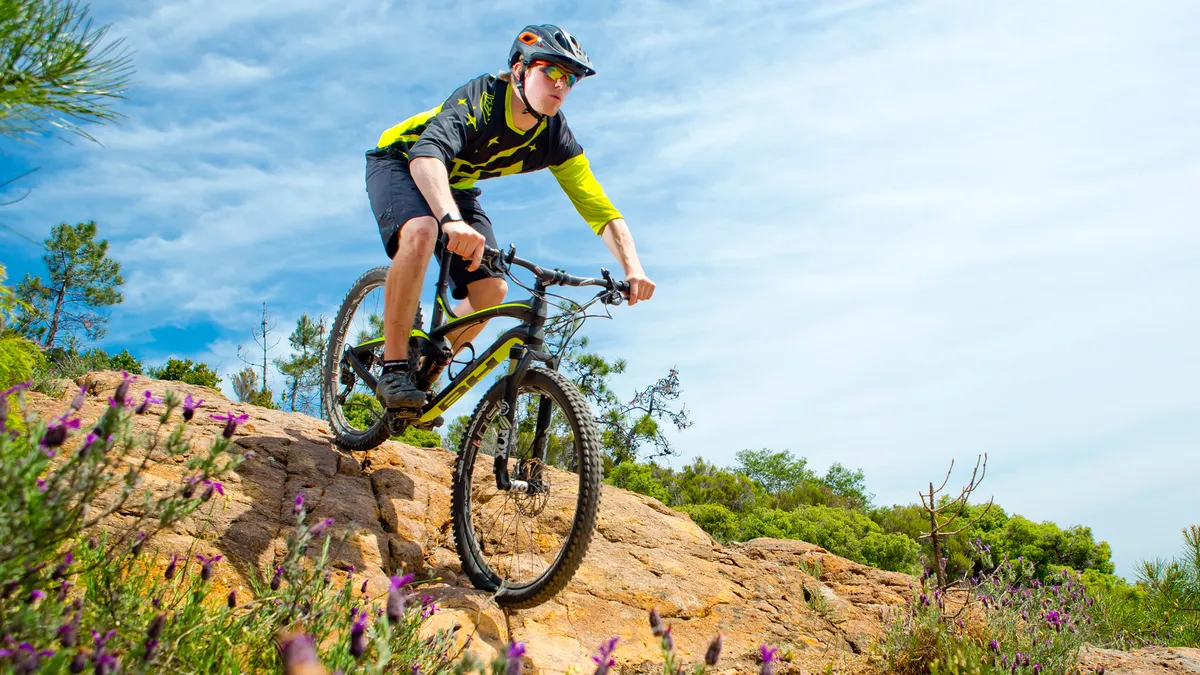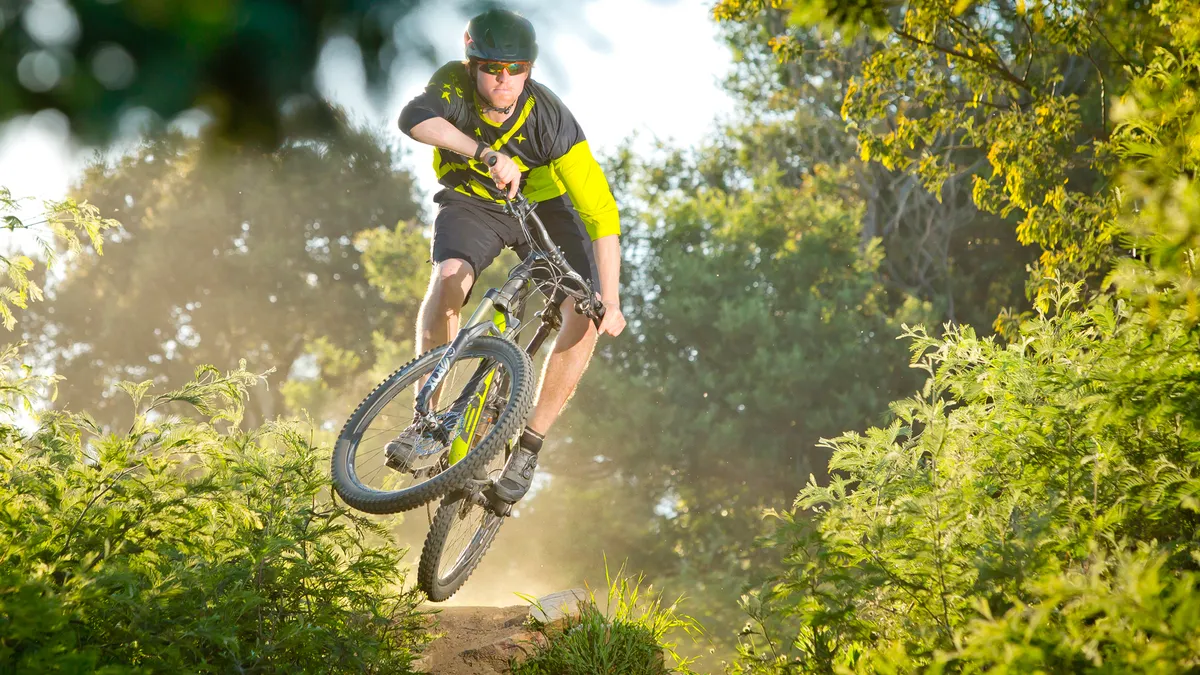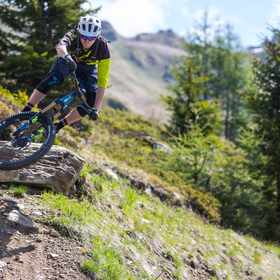Haven’t heard of BH? The Basque builder is a big name in the road bike market, and is growing a reputation for itself in the MTB world.
In the hills above the Mediterranean, BikeRadar recently got a taste of BH's new trail bike. The Lynx 4.8 27.5 has been brought bang up to date with a full carbon frame and 650b wheels. We were lucky enough to ride the new bike on some of the finest trails that make up the training network of BH pro enduro rider, Karim Amor. We had the chance to get familiar with the new bike, as well as meeting the BH team and Amor himself.
This 120mm travel ride has been updated to take advantage of 650b wheels, and uses carbon technology honed from BH's road bike heritage. BH engineers have also worked closely with suspension guru Dave Weagle in the development process. It uses Dave’s patented Split Pivot design to great effect, with the suspension kinematics getting a fine-tune with input from the man himself to deliver the characteristics BH was after.
BH's team took inspiration from the Lynx 6 enduro bike, but used the existing Lynx 4.8 29 trail bike as a starting point. They aimed to take advantage of the smaller wheels to produce stiffer and more compact trail bike than their existing 29er for maximum trail fun.
Chain growth and brake jack are reduced compared with the 4.8 29 in order to improve the sensitivity of the rear suspension. Chainstays have been shortened to 426mm for maximum cornering speed and the rocker link has been redesigned in carbon to boost stiffness (the new link actually weighs no less than its alloy predecessor, but is claimed to be around 50 percent stiffer).
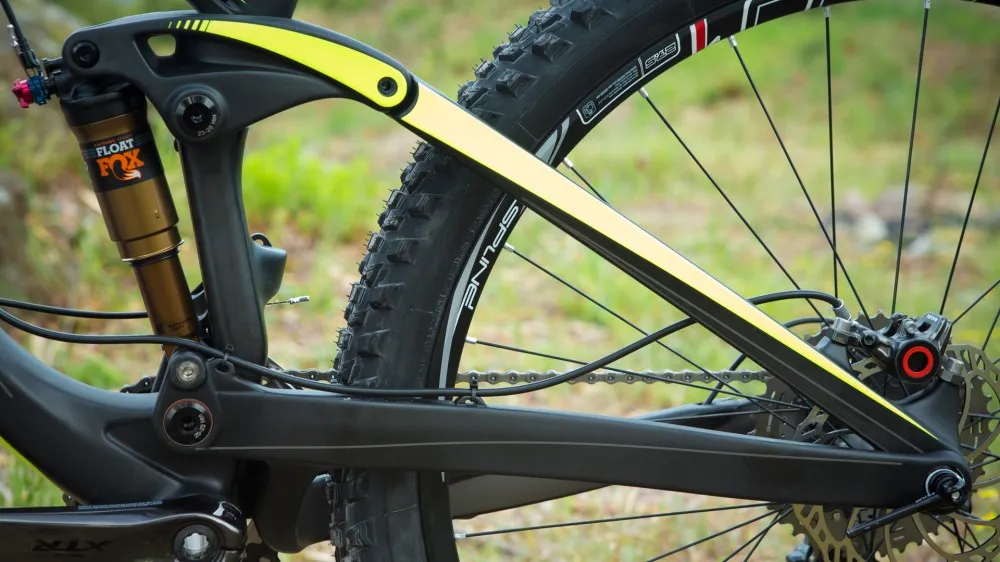
BH has continued to work with Dave Weagle to get the most out of his Split Pivot design
The bike is designed to accommodate Shimano’s new Side Swing breed of front derailleurs and there is a proprietary clip inside the seat tube designed to neatly accommodate the battery pack required for Shimano Di2 setups. (Perfect for riders in possession of a golden goose and looking to upgrade their new steed with electronic shifting.)
The top model shown here, the 9.9, features Shimano XTR (mechanical) gearing, remote controlled Fox Factory CTD suspension, Magura MT8 brakes and DT Swiss 1551 wheels. The dropper post is a welcome sight too. Two lower spec models are also available, starting from £2799.
With the tech talk over, it was time to hit the trails. Pedalling out of the seaside start point, it was clear that the suspension was tuned to be active rather than ruthlessly efficient. The bike was prone to bob a little when cranking hard, but the CTD remote could be used to cut this down.
The supple action made technical climbing more comfortable, though, and traction easier to come by on the rough dusty trails. The low overall weight (11.8kg, claimed) and steep seat angle allowed the bike to climb very nicely on the whole.
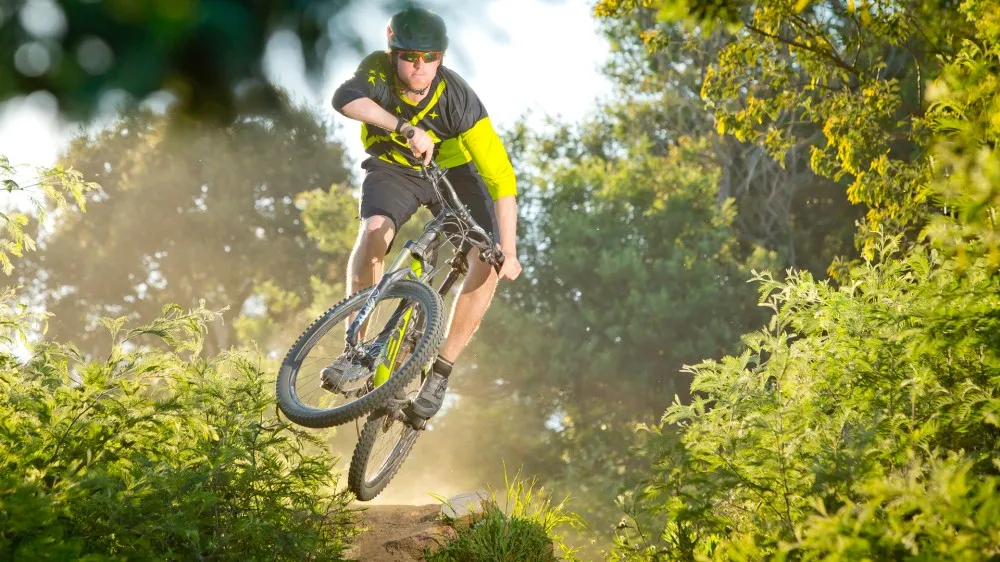
Roomy reach figures mean that fitting a shorter stem shouldn't be an issue
When traversing or descending, the very active rear suspension soaked up small bumps effectively, while packing enough progressiveness to shrug off some larger impacts too. The long stem let it down most on descents, although the reasonably roomy reach figure (458mm in size L) leaves space for you to fit a shorter one.
The descending became very steep and technical on our test loop – enough to push the boundaries of what can be reasonably expected for a 120mm travel bike. Here, the Fox 32 fork, although well controlled thanks to its factory tune, started to feel a little noodly.
Otherwise the short rear-centre, reasonably long top tube and 68-degree head angle made for an agile and lively ride on the less technical, twisty and flowy trails to which the Lynx 4.8 is better suited. The stiff rear end was also noticeable, allowing precise cornering and line-holding through rocky sections and tight corners. We’d be keen to try one out on familiar UK trails, but the dusty switchbacks around Nice were an acceptable substitute to get a handle on the abilities of this lightweight and agile trail bike.
The BH Lynx 4.8 27.5 Carbon is available now.
- BH Lynx 4.8 27.5 Carbon 9.9 – £5499 / €6783 / US$TBC / AU$TBC
- BH Lynx 4.8 27.5 Carbon 9.5 – £2799 / €3487 / US$TBC / AU$TBC
